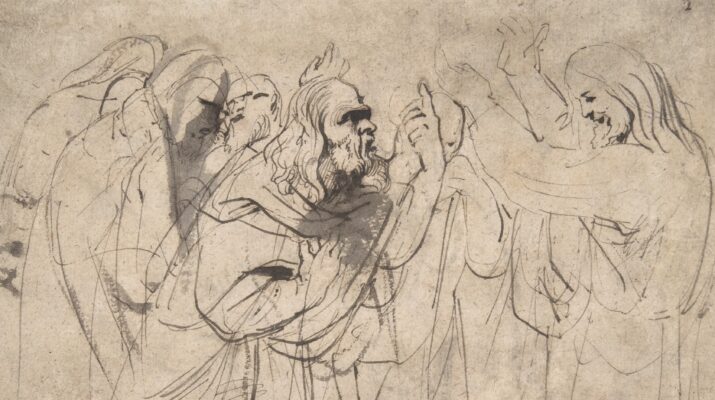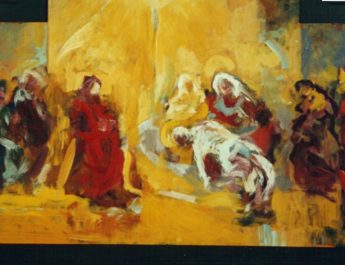Mark 9:34-35
NL 243
34 But they were silent,A for on the wayB they had arguedC with one another who was the greatest.D
A “were silent” = siopao. 10x in NT. From siope (silence or muteness). This is to be silent whether by choice or not. Figuratively, this is being calm as water, keeping one’s peace.
B “way” = hodos. This is way, road, path, or journey. It can imply progress along a route.
C “argued” = dialegomai. 13x in NT. From dia (through, across to the other side, thoroughly) + lego (to speak, tell, mention)}. This is to discuss, preach, reason, argue, address, lecture.
D “greatest” = megas. This is big in a literal or figurative sense – great, large, exceeding, abundant, high, mighty, perfect, strong, etc.
35 He sat down,E calledF the twelve,G
E “sat down” = kathizo. From kathezomai (to sit down, be seated); {from kata (down, against, according to, among) + hezomai (to sit); {from aphedron (a seat, a base)}}. This is to sit, set, appoint, stay, rest.
F “called” = phoneo. From phone (voice, sound, tone or noise; also a language or dialect); probably from phemi to declare, say, use contrasts in speaking to shed light on one point of view); {from phao (to shine) or phaino (to bring light, cause to appear, shine, become visible or clear). This is to call out, summon, shout, address. It is making a sound whether of an animal, a person, or an instrument.
G “twelve” = dodeka. From duo (two, both) + deka (ten). This is twelve – also shorthand for the apostles.
and saidH to them, “Whoever wantsI to be firstJ
H “said” = lego. Related to “argued” in v34. See note C above.
I “wants” = thelo. This is to wish, desire, will, or intend. It is to choose or prefer in a literal or figurative sense. It can also mean inclined toward or take delight in. It can have a sense of being ready to act on the impulse in question.
J “first” = protos. From pro (before, first, in front of, earlier). This is what is first, which could be the most important, the first in order, the main one, the chief.
must beK lastL of allM and servantN of all.”
K “be” = eimi. This is to be, exist.
L “last” = eschatos. Related to eschaton (end, last); perhaps from echo (to have, possess, hold). This is last, end, extreme, final. It can be used to discuss the end times, prophecies of the future, and the afterlife. The branch of theology focusing on all these topics is called “eschatology.”
M “all” = pas. This is all or every.
N “servant” = diakonos. Perhaps from dia (through, across to the other side, thoroughly) + konis (dust) OR from dioko (to chase after, put to flight; by implication, to persecute or to purse like a hunter after its prey; this can be earnestly pursue or zealously persecute) {related to dio (put to flight)}. This is a servant, minister, waiter, or attendant. It is used for a person who performs a service, including religious service. This is the root of the word “deacon.”
Image credit: “Christ and the Pharisees” by Anthony Van Dyck, 17th century.




